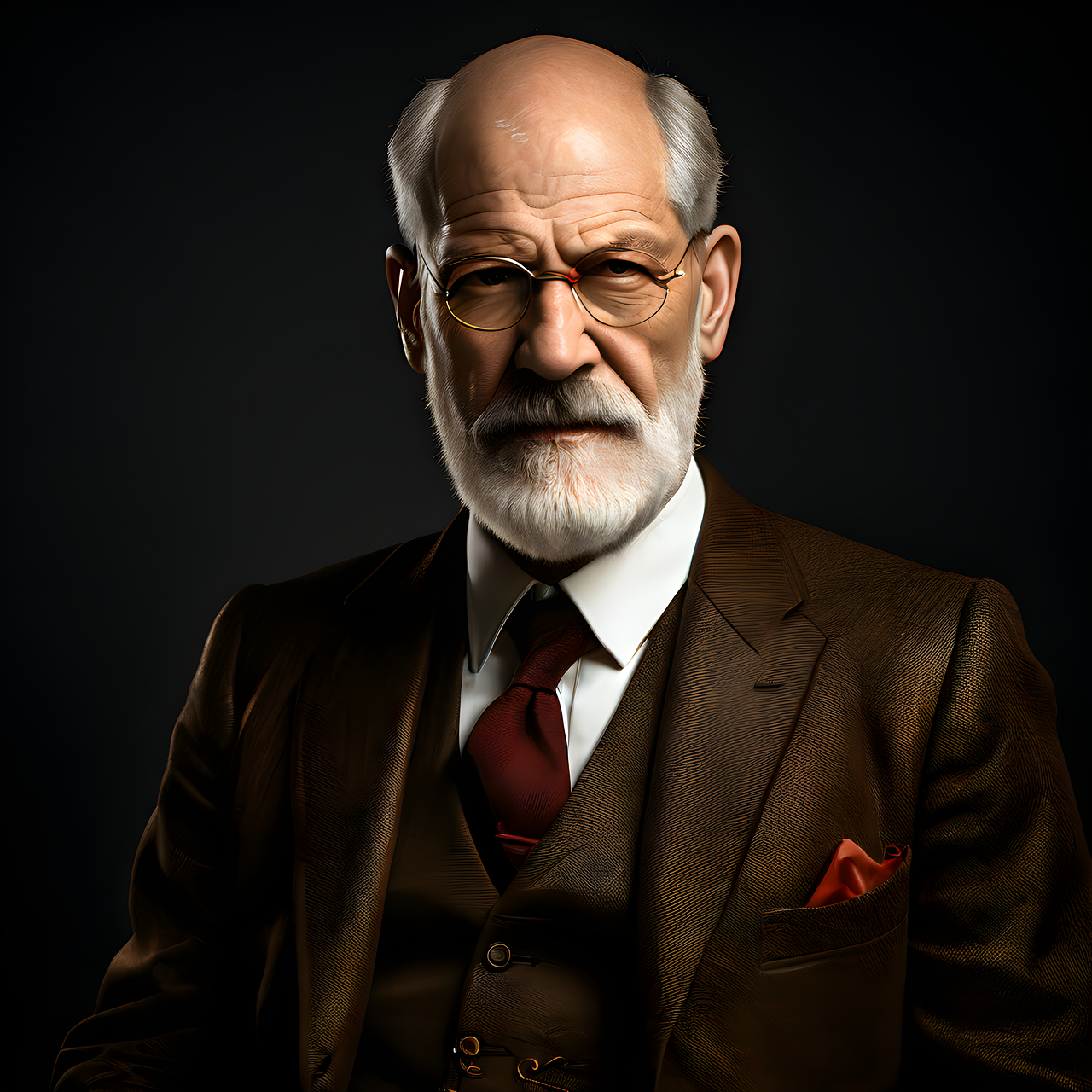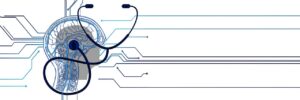Sigmund Freud, fundador del psicoanálisis, desarrolló una teoría sobre la teoría de la personalidad de Sigmund Freud que revolucionó el campo de la psicología. Según Freud, la personalidad humana se puede entender dividida en tres regiones: la inconsciente, la preconsciente y la consciente. Estas divisiones nos permiten comprender mejor cómo nuestra mente procesa información y cómo nuestros pensamientos, sentimientos y comportamientos están relacionados.
Para Freud, el inconsciente está lleno de impulsos y deseos reprimidos que influyen en nuestras acciones sin nosotros darnos cuenta. La preconsciente es un lugar donde se almacenan recuerdos y huellas de experiencia, pero que no están disponibles para la conciencia inmediatamente. Y la consciente es el centro de la experiencia y la interacción con el mundo exterior, aunque incluso aquí Freud sostiene que nuestra conciencia puede estar sesgada por nuestros pensamientos y sentimientos inconscientes.
La teoría freudiana se centra en la dinámica entre estas tres regiones y cómo esto afecta nuestra personalidad. Según Freud, nuestras acciones y comportamientos están determinados por un conflicto entre impulsos instintivos y defensas que intentan controlarlos. Esta lucha interna puede llevar a síntomas psicopatológicos si no se responde adecuadamente.
Un viaje a la mente humana con Sigmund Freud
Los siguientes conceptos centrales desarrollados por Freud nos permiten adentrarnos en el funcionamiento de la mente humana y comprender mejor cómo nuestra personalidad se construye.
La teoría freudiana considera que las pulsiones, como la necesidad de satisfacción inmediata, son impulsadas por tensiones corporales. Según este enfoque, las pulsiones pueden ser clasificadas en varias categorías, incluyendo las sexuales y reproductivas, las de autoconservación y las objetuales. Cada una de estas categorías tiene su propio impulso hacia la satisfacción y el placer.
Además, Freud sostiene que nuestro desarrollo psicológico se divide en varias etapas, desde la infancia hasta la adultez, cada una con sus propios impulsos y desafíos. El estadio oral, por ejemplo, es un período de búsqueda de placer a través de la boca o succionado, mientras que la fase fálica se caracteriza por el conflicto entre el complejo Edipo y la amenaza de castigo.
Estos conceptos básicos constituyen la base de la teoría freudiana sobre la personalidad y permiten comprender mejor cómo nuestra mente procesa información y cómo nuestras acciones están relacionadas con nuestros pensamientos, sentimientos y deseos.
La base: la teoría psicosexual de Freud.
La teoría psicosexual es el corazón de la teoría de Freud sobre la personalidad humana. Según este enfoque, el desarrollo psicológico del individuo se puede dividir en cinco etapas fundamentales: oral, anal, fálica, latente y genital.
Durante la etapa oral, el bebé busca placer a través de la boca o succionado, lo que implica una relación con los padres y la necesidad de satisfacción. A medida que crece, el niño pasa por la etapa anal, donde se centra en regular emocionalmente las eliminaciones y el control.
La etapa fálica marca un importante cambio en el desarrollo psicológico, ya que el niño descubre la differencia entre sus géneros y experimenta un conflicto entre el deseo de tener un objeto del otro sexo (el complejo Edipo) y el temor a la castración. Este conflicto puede llevar a sentimientos de ansiedad y inseguridad en los niños, que pueden ser un precursor para futuras neurosis.
La etapa latente se caracteriza por una represión de la libido, es decir, un silencio sobre la sexualidad. Durante esta etapa, el niño se centra en aprender y desarrollar habilidades sociales y cognitivas, lo que lo predestina para la adultez.
Finalmente, la etapa genital marca el inicio de la madurez sexual y el desarrollo pleno de la personalidad. Aquí, el individuo ha resuelto sus conflicts psicológicos y puede canalizar sus energías psicológicas hacia objetivos más altos.
La teoría psicosexual de Freud nos muestra cómo nuestra personalidad se construye a través de una serie de etapas clave que van desde la infancia hasta la adultez.
El inconsciente y sus contenidos.
Según Freud, el inconsciente es la parte más profunda de nuestra mente, donde se almacenan los pensamientos, sentimientos y deseos que no están disponibles para la conciencia inmediatamente. Aunque el inconsciente no está disponible para la percepción consciente, puede influir en nuestros comportamientos y decisiones sin que nos demos cuenta.
Freud cree que el contenido del inconsciente es una mezcla de recuerdos, pensamientos y deseos reprimidos o inaceptables para nuestra conciencia. Esto puede incluir:
- Recuerdos infantiles: eventos y experiencias significativos que ocurrieron durante la infancia, pero que no podemos recordar conscientemente.
- Pensamientos y sentimientos primitivos: impulsos y deseos primarios que no están adecuados para el adulto responsable y racional.
- Deseos reprimidos: deseos o impulsos que no son aceptables para nuestra conciencia y, por lo tanto, han sido reprimidos o silenciados.
El inconsciente puede influir en nuestra conducta de varias formas, como:
- Inspirando nuestros pensamientos y sentimientos: el inconsciente puede influir en nuestros pensamientos y sentimientos, creando ideas y emociones que no están conectadas a eventos conscientes.
- Controlando nuestras acciones: el inconsciente puede influir en nuestras acciones, llevándonos a tomar decisiones o realizar comportamientos que no están relacionados con nuestra conciencia inmediata.
- Creando síntomas psicopatológicos: el inconsciente puede ser responsable de la aparición de síntomas psicológicos como la ansiedad, la depresión o la hysteria.
Según Freud, el inconsciente es una parte fundamental de nuestra mente que contiene pensamientos, sentimientos y deseos reprimidos o inaceptables para nuestra conciencia. Aunque no está disponible para la percepción consciente, puede influir en nuestros comportamientos y decisiones sin que nos demos cuenta.
Los mecanismos de defensa y sus roles.
Según Freud, los mecanismos de defensa son estrategias psicológicas que utilizamos para protegernos de emociones o ideas desagradables, peligrosas o inaceptables. Estos mecanismos permiten evitar la ansiedad y mantener la integridad personal.
Hay varios mecanismos de defensa identificados por Freud:
- Represión: el silencio de un recuerdo, pensamiento o deseo no deseado, lo que implica una exclusión del consciente.
- Proyección: atribuir los propios pensamientos y sentimientos a alguien más, como si uno fuera inocente.
- Racionalización: inventar argumentos racionales para justificar un comportamiento o decisión.
- Sanação: convertir una emoción indeseable en una emocionalmente aceptable (como la ira en lugar de la ansiedad).
- Distorción: distorsionar la realidad para evitar la ansiedad o el dolor.
- Desplazamiento: dirigirse a un objeto seguro en lugar del verdadero objetivo de la agresividad o del deseo.
- Eufemia: denominar una idea o emoción con un término suave y aceptable, lo que nos permite evitar confrontaciones más difíciles.
Los mecanismos de defensa desarrollados en la infancia pueden persistir en la adultez y influir negativamente en nuestra vida emocional y social. Aunque pueden servir para protegernos temporalmente, también pueden:
- Impedir el acceso a nuestras verdaderas sentimientos y deseos.
- Crear distorsiones en nuestra percepción del mundo y de nosotros mismos.
- Generar ansiedad y conflicto con los demás.
Los mecanismos de defensa son estrategias psicológicas utilizadas para protegernos de emociones o ideas desagradables. Aunque pueden ser útiles a corto plazo, pueden tener efectos negativos en nuestra vida emocional y social si no se utilizan de manera inteligente y saludable.
Éxito y controversia en la teoría de la personalidad de Freud
Sigmund Freud y su teoría de la personalidad han sido objeto de debates y críticas durante mucho tiempo. A continuación, se presentan algunos aspectos positivos y negativos de su teoría:
Éxito:
- Fundamental: Freud es considerado el padre del psicoanálisis y su teoría sobre la personalidad ha influido significativamente en el campo de la psicología.
- Impacto en la cultura popular: La obra de Freud se ha convertido en parte de la cultura popular, con influencias en el arte, la literatura y el entretenimiento contemporáneo.
- Tratamiento efectivo: El psicoanálisis de Freud se han utilizado técnicas de terapia exitosas para tratar condiciones como la ansiedad, la depresión y la neurosis.
Controversia:
- Criticismo científico: Algunos críticos argumentan que la teoría de Freud no está respaldada por pruebas empíricas convincentes y que su enfoque es más filosófico que científico.
- Lectura simplificada de los datos: Se ha criticado a Freud por interpretar los informes de pacientes de manera seleccioniva para apoyar sus teorías preconcebidas, lo que puede haber llevado a conclusiones injustificadas.
- Carencia de diversidad cultural: La teoría de Freud se ha centrada en la cultura occidental y no tiene en cuenta la diversidad cultural global. Esto puede hacer que sus ideas sean menos aplicables en contextos culturas diferentes.
- Críticas a la etnografía: Algunas críticas han objetado el método ético de Freud, argumentando que su trabajo se basa en la hipótesis y la especulación más que en la observación directa y rigurosa.
Aunque la teoría de la personalidad de Freud ha tenido un impacto significativo en el campo de la psicología, también tiene sus LIMITACIONES. Debido a la naturaleza del material utilizado por Freud, su teoría ha sido objeto de críticas y debates.
Conclusión
La teoría de la personalidad de Sigmund Freud es una de las teorias psicológicas más influyentes y controvertidas del siglo XX. Aunque su teoría no ha sido pruebas por completo, su enfoque en la introspección, el inconsciente y los mecanismos de defensa sigue siendo relevante en la psicología actual.
La teoría freudiana se centra en que la personalidad humana es la resultado de la interacción entre la psique (inconsciente, preconsciente y consciente) y los estímulos externos. Según Freud, nuestros pensamientos, sentimientos y comportamientos están influenciados por nuestra herencia genética, vivencias infantiles y experiencias adversas.
Aunque la teoría de Freud ha sido objeto de críticas y debates, sigue siendo una importante contribución a la comprensión humana. Su enfoque en el inconsciente y los mecanismos de defensa nos ha permitido entender mejor los procesamientos cognitivos y emocionales humanos, lo que ha llevado a avances en el tratizo psicológico y la terapia.
La teoría de Freud es una parte integral de la historia de la psicología y sigue siendo un tema interesante y relevante para su estudio.










